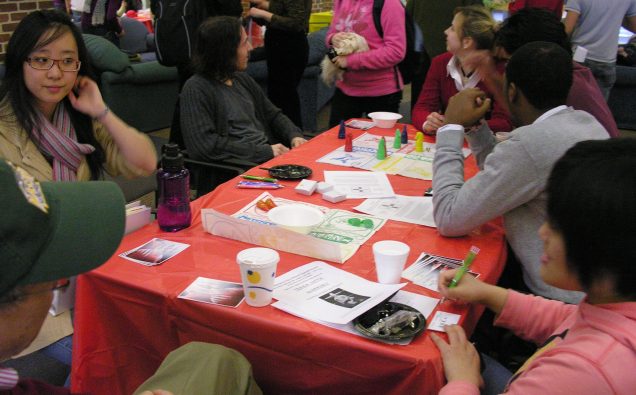
George Mason University Life from Fairfax, Virginia /Wikimedia Commons
As a resounding answer to the anti-immigrant rhetoric in 2016, the United States got the news that six of the seven American Nobel Prize winners that year were immigrants.
The achievement shined light on the colossal role that men and women of extraordinary ability from around the world play to keep their new home, the United States, ahead of its competitors in the global marketplace of ideas and inventions. It was also a celebration of diversity coming together on one platform for development of humankind.
On the other hand, the achievement highlighted the favorable conditions that the United States offers to scholars and scientists to experiment and innovate not just for mutually useful results but for the benefit of the world.
A new study – released by George Mason University’s Institute f0r Immigration Research – highlights the connection between the United States and Nobel Prize winners and the two-way benefits resulting from the vital link and the pursuit of the American Dream.
For instance, the study reveals that in 2018, nine of 12 Nobel Prize winners were affiliated with U.S. institutions of higher education at some point in their lives.
Of these nine, three are foreign-born individuals who studied and worked in the United States, says the report crafted by academics Kevin Nazar, MS, Dr. Michele Waslin, and Dr, James C. Witte, Director, Center for Social Science Research at George Mason University.
“U.S. institutions of higher learning have provided the world’s best scientists and researchers with the human and physical resources and research environments necessary to reach the highest echelons of scientific discovery and innovation,” the report says.
The study finds that foreign-born individuals receive a large share of the PhDs granted by U.S. universities, particularly in the Science, Technology, Engineering, and Math (STEM) fields.The findings come in the wake of several immigration moves President Donald Trump has made, which he says are necessary to fix the broken system and ensure American national security. Some of the moves including a ban on the entry of new immigrants from several Muslim majority countries have been controversial and challenged in courts.
Quite significantly, the study cites that “foreign-born PhD recipients with temporary visas outnumbered U.S. citizens and permanent residents in the fields of engineering and mathematics, and computer sciences in 2016,” according to data from the U.S. National Science Foundation’s Survey of Earned Doctorates (SED).
“Foreign-born individuals who hold a PhD represent large shares of workers in occupations in the Nobel Prize fields of physics, chemistry, medicine and economics.
“Overall, in the United States, 52.2 percent of workers in these occupations are foreign-born, ” the study says, explaining several dimensions of the relationship with the help of charts.
The study spotlights three stories from the list of 2018 Nobel Laureates, who were foreign-born academics and spent considerable time at the U.S. institutions.




![Harvard Square Harvard Yard By User:Chensiyuan (Own work) [GFDL (http://www.gnu.org/copyleft/fdl.html) or CC BY-SA 4.0-3.0-2.5-2.0-1.0 (https://creativecommons.org/licenses/by-sa/4.0-3.0-2.5-2.0-1.0)], via Wikimedia Commons](https://www.viewsnews.net/wp-content/uploads/2017/10/Harvard_square_harvard_yard.jpg)









